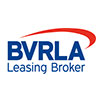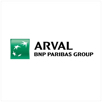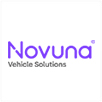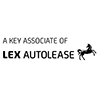Coming out of your company car and moving to Cash Allowance?
As company car tax on ‘traditional’ petrol and diesel continues to rise, and the government puts more and more support behind green vehicles, many businesses are offering cash allowances as an alternative to the traditional company car benefit.
Whilst this sounds great in principle, both employers and employees need to carefully consider the implications of this shift.
Here we guide employees through the top 7 things you should consider when moving from a company car to cash allowance:
1. What does your net income look like?
Going from a company car, and replacing this with an additional £500 a month in salary sounds great, but what does this look like once your income tax is deducted? Does the additional salary move you in to a higher tax bracket and you will actually be receiving less net income on that additional salary?
If you have had a company car with everything included, from insurance, to servicing and the rest, then the movement to a gross amount of, for example, £500 a month for your car allowance needs to be considered carefully before committing to a new monthly lease cost.
2. Do any lease costs you are looking at include servicing and maintenance?
You should factor in something between 10% and 25% in additional costs for your servicing on top of your monthly lease cost. Some leases bundle it in, but beware of seeing cheap lease prices that don’t include servicing, especially if you are a higher mileage driver.
3. Do you need to find a big deposit to get the car you need for the monthly cost you are looking for?
Again, many online advertisements will lead with a great looking monthly cost, but if this requires a big deposit, this may not make sense. Look for contracts that offer “1+” or “Monthly in advance” as an option.
4. Does the lease provider charge any ‘admin’ or ‘doc’ fees?
If so, this will simply be lumped on to the up-front cost to you.
5. What is the cost of insurance?
You may think that insurance costs are always linked simply to the value of the car, but this is not always the case.
6. Is there any buying power you could be accessing through your company having ‘Affinity’ discounts set up through certain manufacturers?
The likes of Volkswagen, Seat and Jaguar Land Rover, amongst others, will offer your company a discount code based on the number of cash allowances drivers there are in the business. This is extra discount that is easy to access and no online site will be offering.
7. Will the lease take you past the warranty period in mileage or age?
Many 4 year leases may look competitive, but after 3 years the warranty may well be over, and the car will be needing its first MOT.
All in all, there are a number of considerations to consider and it is worth taking time to get the decision right.
Most importantly, beware of cheap-looking monthly payments online, particularly if you have not used those businesses before.
Most people spend something around 20-22% of their income on the mobility, with car leases now being the highest proportion of that figure.
It makes sense to consult an independent expert, specialising in these matters, and able to take the time and offer the expertise to support you making an informed decision that you won’t regret.
If we can be of any help at all, our Membership team, led by Zara Hammond specialises in supporting employees receiving cash allowances, and helping businesses and individuals access the buying power their company has to bring you the best possible price, with the personal and expert service Pike + Bambridge are known for.
We offer fanatical support throughout the sales and delivery process, and also throughout the contract, allowing you to buy smarter, and buy faster without all the hassle normally associated with the car-buying process.








